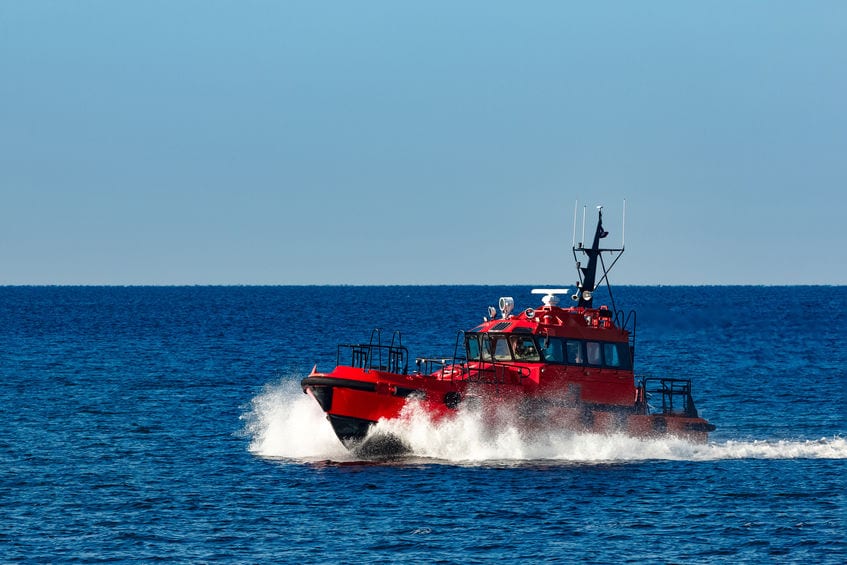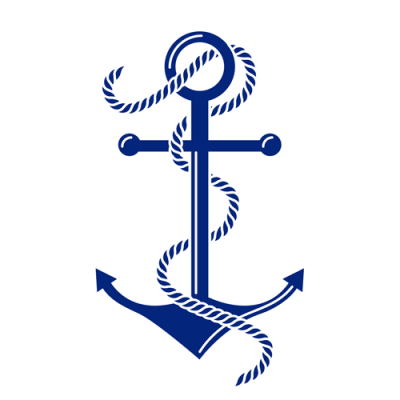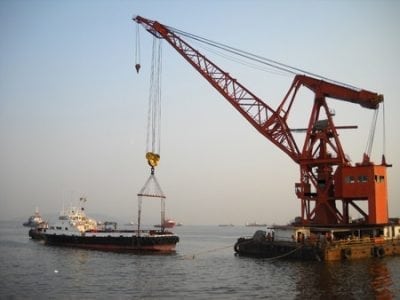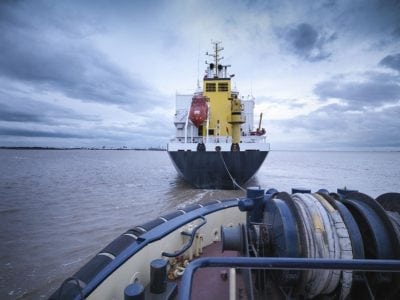Marine Salvors Are First Responders

Frank Butler is a dedicated attorney for marine salvors in Florida. Read his open letter to the Florida Legislature which is currently considering major modifications to marine salve laws in Florida:
Open Letter to the Florida Legislature Regarding Salvors
 I am a maritime attorney practicing in the Tampa Bay area and throughout Florida for the past 25 years. SB 664 (attached) is a bill proposed to limit marine towers and salvors who operate in Florida. This bill will effectively kill off the safety net of towers/salvors who standby 24 hours a day, keep boats and boat captains ready to run out to imperiled boaters in raging weather, many times at night, on a moment’s notice, in places where the Coast Guard does not keep assets. There are nearly 1 million recreational boats registered in the State of Florida according to the Florida Fish and Wildlife Commission. There are towers/salvors positioned in nearly every part of Florida. Many times lives are in jeopardy when these towers/salvors arrive on scene. Vessels can be quickly sinking, mostly already submerged, or already completely submerged and have passengers in the water. I have multiple salvor clients who have saved lives from being lost when there were no other options to those distressed passengers. Those boaters/passengers were simply going to die if not for a salvor who came to their rescue. There are also salvors who have lost their lives in this process. One of them was a client.
I am a maritime attorney practicing in the Tampa Bay area and throughout Florida for the past 25 years. SB 664 (attached) is a bill proposed to limit marine towers and salvors who operate in Florida. This bill will effectively kill off the safety net of towers/salvors who standby 24 hours a day, keep boats and boat captains ready to run out to imperiled boaters in raging weather, many times at night, on a moment’s notice, in places where the Coast Guard does not keep assets. There are nearly 1 million recreational boats registered in the State of Florida according to the Florida Fish and Wildlife Commission. There are towers/salvors positioned in nearly every part of Florida. Many times lives are in jeopardy when these towers/salvors arrive on scene. Vessels can be quickly sinking, mostly already submerged, or already completely submerged and have passengers in the water. I have multiple salvor clients who have saved lives from being lost when there were no other options to those distressed passengers. Those boaters/passengers were simply going to die if not for a salvor who came to their rescue. There are also salvors who have lost their lives in this process. One of them was a client.
SB 664 would require salvors–under even the most dire consequences to the distressed vessel/passengers–to stop before rendering assistance and prepare an estimate over what the predicted charges would be. This is regardless of whether the vessel was about to be lost, lives were at risk, or a pollution spill from the vessel was imminent. Many marine salvage jobs are unpredictable because of the sea environment and because not all conditions can be known in every case at the outset–as in the case where a large boat is pounding on the shoreline in high waves and it is not clear if the vessel’s hull has been punctured.
Furthermore, this bill is completely unnecessary. Salvage cases can be fought in Court if a boater owner or insurer believes the salvor is trying to charge too much for services. The cases are routinely handled under the scrutiny of federal court judge. Hundreds of years of maritime law apply and there is a framework to decide: 1. Does the salvor qualify for a salvage award? and 2., If yes, to what degree should the salvor be compensated? If a judge found the salvor to be over-reaching or inflating the circumstances of the salvage, the judge is able to dismiss the case. If you look at the proponent behind this bill, it appears to be a boater who believes he was overcharged by a salvor. I do not know what efforts were undertaken by that boater to fight those charges. What I do know is that this boater’s efforts in placing this bill before the legislature is placing the safety and lives of Florida boaters at risk by assuring there will be fewer salvors who will believe it is worth it to risk their own lives to go try to save other lives and vessels from destruction. It has long been recognized in maritime law that the profit motive is what keeps these salvors ready to go out in all kinds of weather to assist those in peril at sea. It has also been agreed that having more salvors ready to render assistance is good thing, not a bad thing, as a public policy.

In 1982 the U.S. Coast Guard was told by Congress to reevaluate its policies regarding providing towing and salvage services to distressed vessels. The USCG thereafter decided to back away from providing towing and marine salvage services where a private towing and salvage company was available to complete the task. When the USCG decided to back away from providing towing and salvage services most experts agree that this was the birth—in force—of the private maritime towing and salvage industry. Today there are private towing services in Tampa Bay, Clearwater, Ft. Myers, Naples, Miami, and the Florida Keys, etc., with US Coast Guard-licensed captains running powerful and fast boat to come to your aid in time of crisis. In fact in some ports the towing/salvage companies compete to see who can get to you first. (Don’t we wish every service we ordered competed to get our business?) Today, in most cases, the fact is, the U.S. Coast Guard is not coming to get you and your vessel. They will defer to one of these private towing/salvage companies. Some of the reasons for this are as follows:
The Towing/Salvage companies get to you faster than the Coast Guard.
- The U.S. Coast Guard has worked with the Towing/Salvage company before your emergency.
- The U.S. Coast Guard may not have any available assets to use on your emergency.
- If the U.S. Coast Guard determines the conditions are not safe for their personnel, they won’t send them to help you.
- The U.S. Coast Guard knows the Tower/Salvor will keep them informed.
- The U.S. Coast Guard also has the task of border security, drug interdiction, and immigration duties.
- The U.S. Coast guard does not want to be in the Towing/Marine Salvage business.
It Is a Good Thing.
At first it may seem like this is a bad idea to have the Coast Guard not be involved in towing and marine salvage situations. But if we ask–“Is it better to have more ambulances and firetrucks or fewer?”—most people would say in their neighborhood they would want to see more ambulances and firetrucks, not fewer. When the Coast Guard got out of the marine towing and salvage business, many private companies jumped in to fill the void.
The fact is, there are more marine salvors now than in 1982—when the U.S. Coast Guard decided to get out of the business–and this provides many additional boats and trained personnel ready to help you and your vessel in case it begins sinking, catches fire, or capsizes, etc. Many people do not recognize that the U.S. Coast Guard is not in every port in the State of Florida. Conversely, the major towing companies do generally have a presence in every port in Florida. If your vessel is sinking, is struck by another vessel, or has caught fire, and the nearest Coast Guard vessel is 50 miles away, you want the local maritime salvage company to be able to respond very quickly. When you call out for a MayDay! and there is no Coast Guard asset to help you, you want the maritime salvor who is based nearby to help you in your time of emergency.
It’s Good Public Policy

When a salvor saves a vessel from sinking or from total loss there are three parties who benefit from that casualty. First, the insurance company which insured the vessel benefits because it does not have to pay for a total loss of the vessel. Second, the salvor benefits and is rewarded based upon his efforts. Third, the owner benefits because the vessel usually does not become a total loss, and the owner has done what every marine insurance policy says you must do: “take all reasonable action to prevent further damage or total loss of the vessel”. So, in the event of the mythical $10 million Hatteras vessel which is sinking 20 miles offshore, the salvor is rewarded for helping save the vessel from sinking, the insurance company is better off because it does not have to pay out a total loss of $10 million, and the owner also benefits because the owner does not lose the vessel.
Having the private maritime towing and salvage services ready to assist in a moment’s notice is also good for another reason. Do we want our tax dollars being spent by the U.S. Coast Guard performing towing of recreational vessels, or do we want this to be a private, non-governmental function? Most people would agree that we need to make the government spend less money, not more. Where an insurance company for the saved vessel is responsible for the towing or salvage charges, it is a better public policy to place the cost of those services on private insurance—not on the federal government.
Maritime Salvors Save Lives
In addition to providing emergency towing and marine salvage services, marine salvors also save lives. Yes, that is correct, maritime salvors save lives. It is for the reasons mentioned above that many times the marine salvors are the local boats and licensed captains nearest to the MayDay! situation. In some of those MayDay situations lives are at risk, and many times the MayDay is called during dangerous weather. Salvors are able to provide life-saving services because they keep their vessels in the water, their equipment ready to go, they keep personnel ready to go, and they maintain contact with the VHF radio pretty much 24 hours a day.
There Are Safeguards From Over-Reaching.
-
Most people involved in a marine salvage situation have insurance on their vessel. The insurer can, and does, fight unreasonable charges. The insurance company does not just roll over and pay an unjustified payment to a marine salvor. Here’s an inside track: Insurance companies tend not to pay more than they think is reasonable for any service.
-
Cases involving over-reaching or fraud can be fought in a civil court. Most of these civil cases are brought in federal court, and federal judges tend not to tolerate over-reaching conduct to put it mildly.
-
The amount of a salvage recovery is based upon several factors which judges use to establish general guidelines on how much a marine salvor should be paid in any given case. (See The Blackwall, 77 U.S. 1 1869)(Some of those factors have to do with the level of peril faced by the vessel, the risk to the salvor, the response time of the salvor, etc.)
-
The salvor still has to prove his case in court to recover if the owner or insurer contests the salvage, and in cases of fraud or over-reaching the judge can rule there is no recovery.
Maritime salvors perform a vital role assisting recreational boaters and many times maritime salvors save the lives of boaters who would otherwise be lost. Safeguards are already in place to avoid any fraud or over-reaching. The consumer is best protected when there are more maritime salvors available to assist them and to potentially render life-saving assistance.
Fdb
